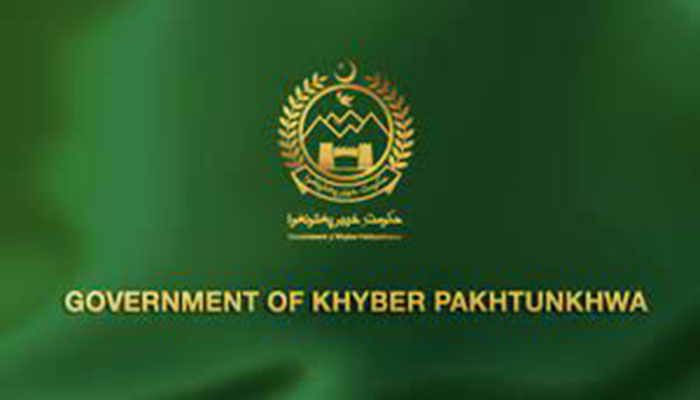Opposition victors face challenge of working in harmony with KP govt
ISLAMABAD: In a departure from the practice of the present and previous administrations, the Pakistan Tehreek-e-Insaf (PTI) government in Khyber Pakhtunkhwa (KP) is set to go through a new experience of living with numerous hostile local bodies, run by the opposition parties.
It is always difficult to run the local councils without the cooperation, help and assistance of the concerned provincial government. Like all provincial laws, the KP local government (LG) act, framed by the PTI, under which the recent elections to 17 districts were held, gives several powers to the chief minister to rein in the local bodies.
The local bodies in the largest KP cities like Peshawar and Mardan, which have the maximum number of federal and provincial seats, will be under the control of the opposition parties. The PTI’s main opponents – the Jamiat-e-Ulema-e-Islam-Fazl (JUIF) and the Awami National Party (ANP) ---have won the election to the mayors of the two cities respectively.
The direct election to the mayors and chairmen of tehsils is the brainchild of the PTI, which enforced it despite opposition from different political circles. Prime Minister Imran Khan has said in a tweet that amidst the noise over the KP local government elections, no one realizes that these polls herald the start of a modern, devolved local council system as it exists in successful democracies. Directly elected tehsil Nazims will improve governance and create future leaders; it is the first time in our 74-year history that we have an empowered local government system, he posted.
However, contrary to his assertion, the PTI had dissolved the elected local councils in Punjab in May 2019 after coming to power in August 2018. After a long judicial battle, the Supreme Court reinstated the local governments after 29 months when they had been left with just over two months of their tenure. Even after the court order, the Punjab government dragged its foot and complied with it only after the Supreme Court warned of taking strict action against those responsible. Their term expired on Dec 31.
The PTI government had disbanded the local councils on the grounds that they were being controlled by its arch-rival, the Pakistan Muslim League-Nawaz (PMLN). Fresh local elections are planned in Punjab some time this year.
Prior to this dissolution of the local bodies, the first Benazir Bhutto government had also dismissed the local councils in Punjab, which had been elected during the tenure of the previous government. It had also taken the same plea as that of the PTI that the local governments were filled with opposition nominees.
The then government had also appointed local administrators, in most cases its party activists, and introduced the People’s Works Programme, which later became a serious bone of contention because of various allegations and controversies.
Under the KP local government act, the provincial government enjoys massive powers to proceed against the heads of the local councils. It will be a challenge for the heads of the local bodies belonging to the opposition parties to survive.
They depend significantly on funds provided by the provincial government. Section 34 of the LG act says the annual budget for each local government will contain estimates of grants-in-aid from the KP government etc. Conditional grants from the government or other local government will be shown separately in the budget.
Section 59 says “where, in the chief minister’s opinion, a chairman is deliberately avoiding or abstaining wilfully or failing to comply with directions given under the LG act, the chief minister may, for reasons to be recorded and conveyed in writing, suspend him for a period not exceeding 30 days and refer the matter to the LG Commission (LGC) for enquiry.
During the course of enquiry, the commission will provide an opportunity of personal hearing to the suspended chairman and will submit its report along with its recommendations which may include his removal for appropriate action in light of such recommendations. During the period of suspension, a member will be notified to act as chairman and in case no decision is taken within 30 days from the date of suspension, he will stand reinstated to his office.”
-
 British Royals ‘not Appreciated’ In Modern World, Says Author
British Royals ‘not Appreciated’ In Modern World, Says Author -
 Applebees Closures Expand With Glenville Restaurant Closing For Good After 10 Years
Applebees Closures Expand With Glenville Restaurant Closing For Good After 10 Years -
 Louvre Director Resigns After Historic Jewelry Heist Exposed Security Flaws
Louvre Director Resigns After Historic Jewelry Heist Exposed Security Flaws -
 Mike Johnson Presents George Washington's Gavel For First Time At State Of Union
Mike Johnson Presents George Washington's Gavel For First Time At State Of Union -
 Mexico Travel Warning: What You Need To Know As Airlines Resume Flights To Mexican Cities
Mexico Travel Warning: What You Need To Know As Airlines Resume Flights To Mexican Cities -
 Jamie Lee Curtis Mourns Death Of Ex-boyfriend Robert Carradine: 'He Was My First Crush'
Jamie Lee Curtis Mourns Death Of Ex-boyfriend Robert Carradine: 'He Was My First Crush' -
 Andrew Mountbatten Windsor Worried About Wrong Things In New Home
Andrew Mountbatten Windsor Worried About Wrong Things In New Home -
 Jack Hughes Speaks Out As Jake Guentzel, And Team USA Push Back On State Of The Union Backlash
Jack Hughes Speaks Out As Jake Guentzel, And Team USA Push Back On State Of The Union Backlash -
 Shamed Andrew Got ‘massages’ Over Royal Money, Says Victim
Shamed Andrew Got ‘massages’ Over Royal Money, Says Victim -
 Justin Trudeau's Son Breaks Silence On Katy Perry Romance
Justin Trudeau's Son Breaks Silence On Katy Perry Romance -
 Zachery Ty Bryan Sentenced To 16 Months In Jail After Pleading Guilty To DUI
Zachery Ty Bryan Sentenced To 16 Months In Jail After Pleading Guilty To DUI -
 'Your Friends & Neighbors' Star Jon Hamm Reacts To His Viral Dancing Meme
'Your Friends & Neighbors' Star Jon Hamm Reacts To His Viral Dancing Meme -
 Anthropic Unveils New AI Tools Weeks After Legal Plug-in Rattled Markets
Anthropic Unveils New AI Tools Weeks After Legal Plug-in Rattled Markets -
 Osheaga 2026 Lineup Revealed With Tate McRae, Lorde And Twenty One Pilots
Osheaga 2026 Lineup Revealed With Tate McRae, Lorde And Twenty One Pilots -
 Prince Harry, Meghan Markle Markle Training Beatrice, Eugenie For Tell-all
Prince Harry, Meghan Markle Markle Training Beatrice, Eugenie For Tell-all -
 Chris Hemsworth Reveals Real Reason He Quit Hollywood Life For Melbourne
Chris Hemsworth Reveals Real Reason He Quit Hollywood Life For Melbourne




